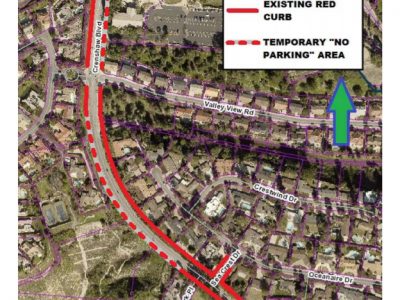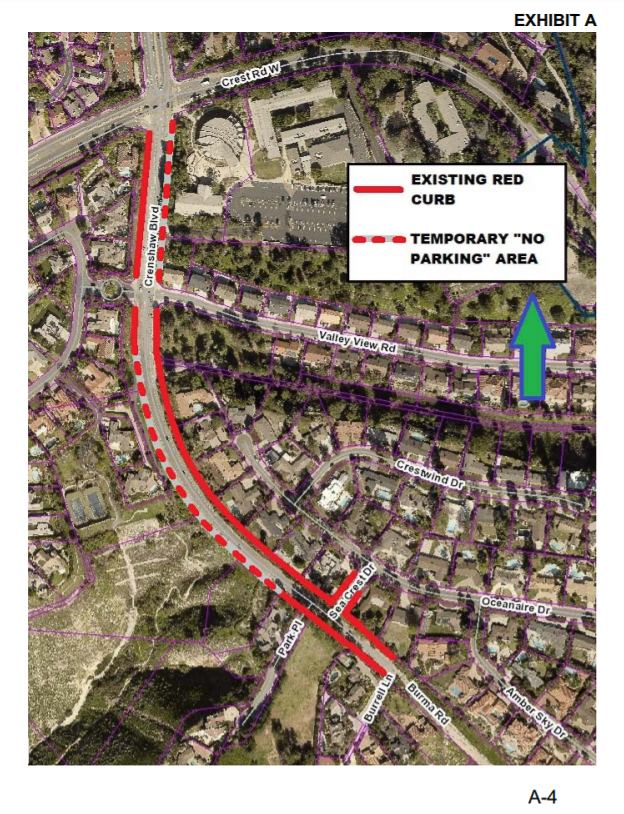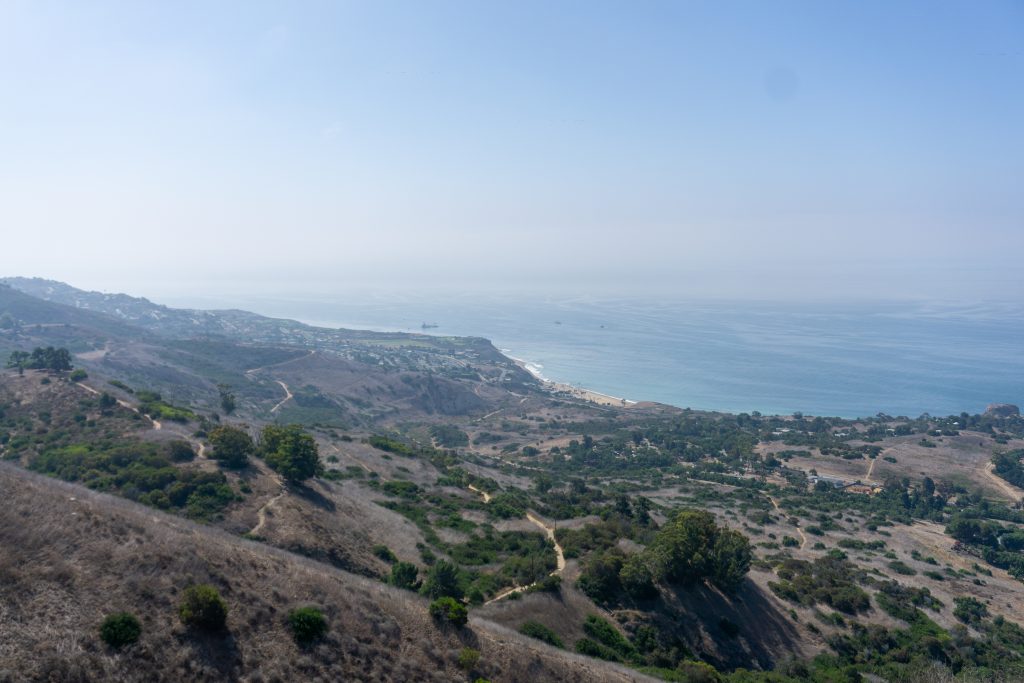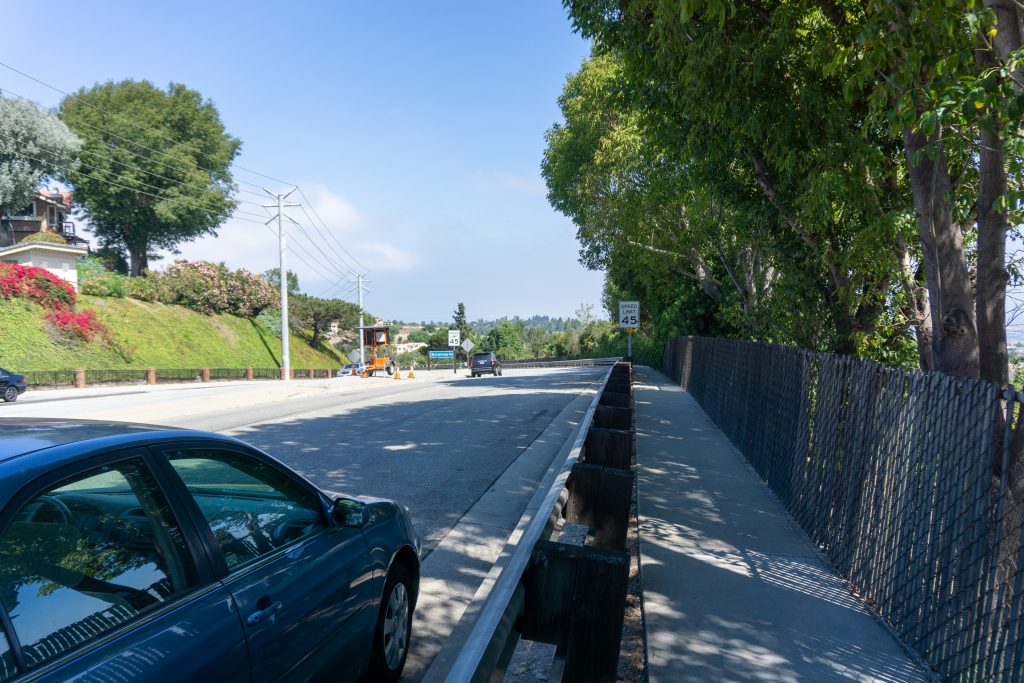 See a full set of photos illustrating parking restrictions at Portuguese Bend Reserve on the Emmett Institute Flickr page. Using COVID-19 for cover, the City of Rancho Palos Verdes took steps this month to limit public access to a popular portion of the Palos Verdes Nature Preserve, an open space rivaled in size and beauty …
See a full set of photos illustrating parking restrictions at Portuguese Bend Reserve on the Emmett Institute Flickr page. Using COVID-19 for cover, the City of Rancho Palos Verdes took steps this month to limit public access to a popular portion of the Palos Verdes Nature Preserve, an open space rivaled in size and beauty …
The post Red Paint Will Curb Public Access to Palos Verdes Nature Preserve, One of Los Angeles County’s Most Significant Open Spaces appeared first on Legal Planet.
#losangeles #publicaccess https://legal-planet.org/wp-content/uploads/2020/08/crenshaw-parking-restriction-RPV-400x300.jpg https://legal-planet.org/2020/08/31/red-paint-will-curb-public-access-in-palos-verdes-nature-preserve-one-of-los-angeles-countys-most-significant-open-spaces/

See a full set of photos illustrating parking restrictions at Portuguese Bend Reserve on the Emmett Institute Flickr page.
Using COVID-19 for cover, the City of Rancho Palos Verdes took steps this month to limit public access to a popular portion of the Palos Verdes Nature Preserve, an open space rivaled in size and beauty in Los Angeles County only by Griffith Park, the Santa Monica Mountains, and Angeles National Forest.
The city council should immediately re-consider its decision to eliminate public street parking near the Portuguese Bend Reserve, made hastily on Aug. 18 with public input only from local homeowners, and set to be confirmed at another meeting on Sept. 1. A more equitable solution is needed to provide public access. Non-residents make up more than 95 percent of visitors to the preserve on holidays and weekends and the purchase and management of the public space is supported by state and county resources.

The new parking restrictions reinforce the Palos Verdes peninsula’s reputation for hostility to outsiders in open spaces, especially Latino and Black visitors, who have historically been excluded by racial covenants from purchasing properties on the peninsula and today make up only 7 percent of its residents. The restrictions add to a long history in California of homeowners excluding the public from the coast through parking restrictions, legal or illegal. While sanctioned by lawmakers, Rancho Palos Verdes’s “no parking” measures have the same effect as the illegal red-painting of curbs by a vandal in La Jolla earlier this summer: deterring non-residents from enjoying a protected public space that is only accessible by car.
The parking restriction was decided at an Aug. 18 city council meeting, when four councilmembers voted unanimously to paint curbs red and install “no parking signs” along Crenshaw Blvd. south of Crest Rd. The council’s move will eliminate 55 parking spaces near popular trailheads for the Portuguese Bend Reserve, the largest portion of 1,600 acres of open space managed by the nonprofit Palos Verdes Peninsula Land Conservancy (PVPLC) in partnership with state agencies. The new restrictions force visitors to park a further half mile away on a major arterial road and present a significant barrier for entry for all visitors–but especially families, those with mobility constraints, and the elderly.

The parking restrictions create a major safety hazard for visitors, increasing the risk of vehicle collisions and serious pedestrian injuries along a stretch of Crenshaw Blvd. where cars and trucks routinely drive at more than 45 miles per hour. On one side of the street, a waist-high collision barrier installed to prevent vehicles from crashing at speed into nearby backyards stands between the curb and parking. Two newly installed city A-frames at the top of the intersection are the only signage to indicate that parking is in fact legal along the street.
While some of Los Angeles County’s most popular trails have seen sensible adjustments to access to prevent COVID-19 transmission, overcrowding inside the Portuguese Bend Reserve is not the reason for the city council’s new parking restrictions. Both local homeowners and city officials speaking at the Aug. 18 meeting agreed that the preserve’s trails have plenty of room for hikers. Rather, homeowners lodged complaints about drivers waiting for street parking spots or making (legal) u-turns.
The complaints are not new. The city has reduced public access to open space before at the request of local residents. In 2015, the city made the controversial move to cut 42 parking spots along the same stretch of Crenshaw Blvd., by painting curbs red and adding signage on neighborhood streets restricting visitor parking. Local homeowners have consistently opposed alternative city proposals to manage access, contending that parking meters on public streets would cause “blight” and a long-planned parking lot at the foot of the reserve would increase crime and traffic.
The city’s new “no parking” order will be in effect for 65 days as city staff produce a more complete parking plan for the reserve. Staff have already extensively studied and made recommendations for several parking options, including an online reservation system, pay stations along public streets, or a long-planned “Gateway Park” parking lot at the foot of the Portuguese Bend Reserve.
Councilmembers at the Aug. 18 meeting acknowledged the city is unlikely by early November to have decided, let alone implement any alternative parking plan. As a result, the city could vote to indefinitely extend the “temporary” parking restrictions for any number of two-month periods.
While I don’t have the same legal training as most of my Legal Planet colleagues, I see several reasons the council should restore parking on Crenshaw Blvd. near the trailhead and seek creative solutions to increase access to this important public space.
The council came to a decision without hearing perspectives from Rancho Palos Verdes residents who require parking to access the trailhead. Non-residents were also denied a voice in the decision, even though many have made financial or volunteer contributions to PVPLC and may live in communities devoid of open space.
The new parking restrictions may violate the deed of sale for the Portuguese Bend Reserve. At the Aug. 18 meeting, a city staffer noted that as part of the city’s 2005 purchase agreement for the parcel, the city was “required to provide adequate, reasonable parking for the reserve” and cannot give preferential treatment to anyone based on their residence for entry into the reserve.
The “no parking” measure is not a recommended solutions among several analyzed by city staff, who concluded painting curbs red would require “extensive public outreach before implementation.” The Aug. 18 vote would have gone into effect without notice but for a requirement that a city ordinance be passed to authorize the street change. As a result, the public was provided seven days’ notice via updates to the city’s Facebook and Twitter accounts.
It’s not clear the new parking restrictions improve public safety, a requirement for the special ordinance. The plan shunts street parking down Crenshaw Blvd. to a segment of road with much faster and higher volumes of vehicle traffic, where parallel parking would be more likely to result in collisions and pedestrians are at far greater risk of injury.
The parking restrictions may attract the scrutiny of the California Coastal Commission, a state agency tasked with preserving public access to the coast, which has previously weighed in on parking at Abalone Cove, a nearby coastal reserve also managed by PVPLC, nixing a city proposal for preferential parking treatment for local residents.
In coming to a solution, the council should consider ways to include more diverse voices in its decision-making process. The councilmembers voting on Aug. 18 were mostly white men with engineering degrees who spent significant time considering complex and expensive technical solutions such as online permit reservation systems and not enough time soliciting and listening to the viewpoints of non-residents and other stakeholders.
Preserving public access will require city officials to transcend the city’s legacy of exclusion and do the community engagement necessary to make decisions reflecting the perspectives and interests of a broader group of constituents.
Disclosures: I grew in Rancho Palos Verdes and volunteered in high school with the PVPLC to clear non-native species from parts of the reserve. Two family friends currently serve on the PVPLC board of directors.
The post Red Paint Will Curb Public Access to Palos Verdes Nature Preserve, One of Los Angeles County’s Most Significant Open Spaces appeared first on Legal Planet.
By: Daniel Melling
Title: Red Paint Will Curb Public Access to Palos Verdes Nature Preserve, One of Los Angeles County’s Most Significant Open Spaces
Sourced From: legal-planet.org/2020/08/31/red-paint-will-curb-public-access-in-palos-verdes-nature-preserve-one-of-los-angeles-countys-most-significant-open-spaces/
Published Date: Mon, 31 Aug 2020 23:21:28 +0000
Vist Maida on Social Me
Website Links
Maida Law Firm - Auto Accident Attorneys of Houston, by fuseology
No comments:
Post a Comment